
The immune system defends your body from external invaders.
Scientists have found what turns off the molecular alarm system, which is crucial in our immune response.
Scientists have discovered what turns off the molecular alarm system that plays a critical role in our immune response.
The antibacterial superhero MR1 (MHC class I-related molecule) is a protein found in every cell of the human body that functions as a molecular alarm system, alerting powerful cells of our immune system, our white blood cells, when cancer or bacterial infection is present.
While prior groundbreaking research revealed the cellular machinery that MR1 depends on to activate, nothing was understood about how the MR1 alarm is “turned off” until now.
The research, co-led by Dr. Hamish McWilliam of the University of Melbourne and Professor Jose Villadangos of the Doherty Institute and the Bio21 Institute, was published in the Journal of Cell Biology and shows the essential molecular mechanism that controls MR1 expression.
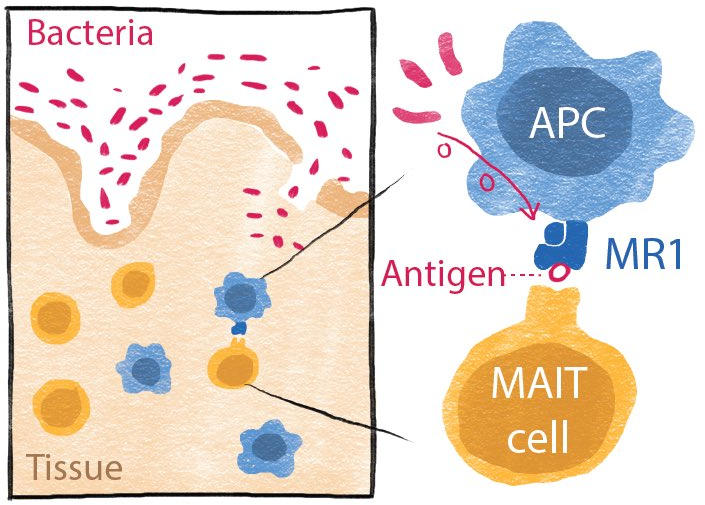
Our immune system senses bacteria when cells equipped with the protein called ‘MR1’ captures small molecules (antigens) and present them to powerful immune cells called “MAIT cells”. Credit: The Peter Doherty Institute for Infection and Immunity
“What we found is that there are proteins – called AP2 (adaptor protein 2) – inside our cells that bind to MR1, and drag it inside the cells,” Dr. McWilliam explains.
“Once inside, MR1 can no longer signal to white blood cells anymore, which effectively turns off the immune response.”
In their experiments, the research team found that by deleting AP2 in cells or mutating MR1, they could regulate MR1’s activation which in turn stimulates or inhibits the presence of white blood cells.
Dr. McWilliam says this is an exciting discovery as it unlocks a fundamental understanding of the biology of MR1 and contributes to global efforts to design immune-boosting treatments.
“By understanding how to turn off MR1, we might be able to block or increase immune response, to harness it and control immunity to pathogens or tumors,” Dr. McWilliam says.
Reference: “A specialized tyrosine-based endocytosis signal in MR1 controls antigen presentation to MAIT cells” by Hui Jing Lim, Jacinta M. Wubben, Cristian Pinero Garcia, Sebastian Cruz-Gomez, Jieru Deng, Jeffrey Y.W. Mak, Abderrahman Hachani, Regan J. Anderson, Gavin F. Painter, Jesse Goyette, Shanika L. Amarasinghe, Matthew E. Ritchie, Antoine Roquilly, David P. Fairlie, Katharina Gaus, Jamie Rossjohn, Jose A. Villadangos and Hamish E.G. McWilliam, 21 September 2022, Journal of Cell Biology.
DOI: 10.1083/jcb.202110125
The study was funded by the National Health and Medical Research Council, the Australian Research Council, the Australian Research Council Centre of Excellence in Advanced Molecular Imaging, the National Institutes of Health, the New Zealand Ministry of Business Innovation and Employment, and the Horizon 2020 Framework Programme.



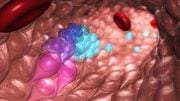

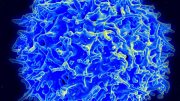
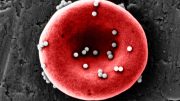
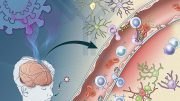
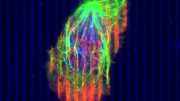
Be the first to comment on "Groundbreaking Research Exposes Immune System’s “Off Button”"